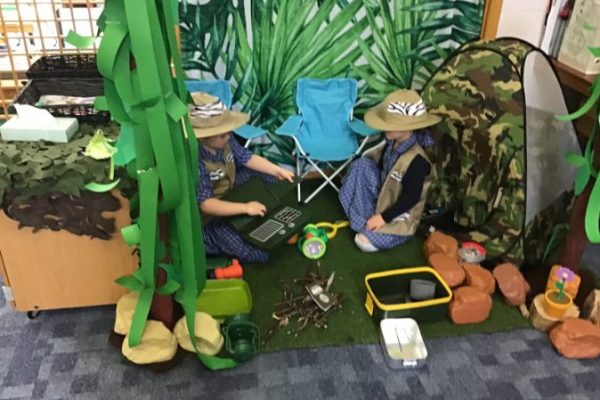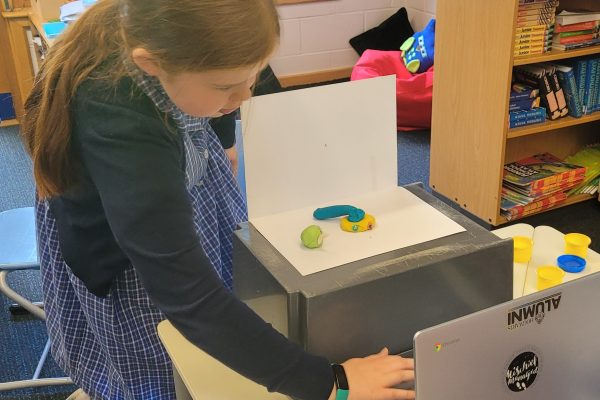Nurturing the Seeds of Success: Enjoying the fruits of your labour
Autumn is my favourite time of year! Woolly jumpers, snuggly thick socks and hot chocolate….. What could be better? The trees have begun their annual display of showing us how beautiful it can be to embrace change and let go of things of the past, readying themselves for a rest before a fresh start next spring, and all the joy and anticipation that this can bring. Autumn is also the time when nature reveals its true bounty. The trees and hedgerows are laden with fruit and gardeners nationwide are filling their sheds, garages, freezers and any other available space with pumpkins, apples, berries and the like. Gardeners, perhaps better than most, understand that in the intricate tapestry of life, the connection between nature and hard work is a thread that runs deep. How then, can we apply that wisdom to ourselves, and our continued quest for knowledge and education. Drawing insights from educational researchers such as Carol Dweck and John Hattie, we can start to understand this important link.
Every great endeavour begins with a seed of ambition. Just as a tiny seed contains the potential to become a mighty oak, your dreams and aspirations hold untold possibilities. When you plant the seed of hard work and dedication, you set the stage for the natural processes of growth and maturation. Just as a seed requires the right soil, sunlight, and water to flourish, educational efforts require the right environment and resources. As our students embark on their journey towards their goals, they will find that hard work and perseverance are the essential tools in their learning tool kit. Nature teaches us that growth is a process that takes time. In the same way, success rarely happens overnight. It’s the daily nurturing of your ambitions, the consistent tending to your goals, that will yield the sweetest fruits in the end. But that takes perseverance!
Developing perseverance and strong foundations in education is an ongoing process. It starts early and should be nurtured throughout a student’s academic journey. Encouraging curiosity can stimulate a child’s inner interests by exposing them to a variety of subjects and experiences. Encouraging questions and exploration from an early age will teach them to develop their skills and not give up when things get tough.
On the educational journey of our students at the High School, these seasons may not align perfectly with the school calendar, but their lessons are no less applicable. We want to encourage them to embrace the seasons of their life, recognising that each phase has its own unique beauty and purpose. Sometimes, the harsh winters of setbacks and failures are essential for strengthening your roots and preparing for future growth. They help us to recognise that the rewards of perseverance are well worth the wait. When the time is right, and you’ve nurtured your dreams with care, the joy of harvest is unparalleled. Just as a farmer rejoices in a bountiful crop, you’ll savour the satisfaction of achieving your goals. The fruits of your labour may be material success, personal growth, or a sense of accomplishment in your educational journey. But a successful harvest does depend on the work that is put into it. At the start of the academic year, we expect our students to be laying the foundation for success from the word go.
Dr. Carol Dweck, a prominent psychologist, has extensively studied the concept of the “growth mindset.” In her research, she emphasises the idea that individuals who believe their abilities can be developed through dedication and hard work are more likely to succeed than those who view their abilities as fixed traits. Dweck’s work highlights the importance of perseverance in education. When students embrace a growth mindset, they are more inclined to tackle challenges, learn from their mistakes, and persist in the face of setbacks. This mindset shift is particularly significant in the educational context because it fosters a love for life long learning and a willingness to put in the effort required to excel.
In John Hattie’s work, Visible Learning for Teachers, we see the emphasis of importance that educators and students should have a clear understanding of their learning goals, the progress they are making and the strategies that work best for them as individuals. Just as every gardener must work out which strategy works best for them to get the most out of their tomato plants, this can be a bit of a trial and error process! Emphasis on the ‘error’ here. Learning from mistakes is a vital part of the educational journey and Hattie refers to this regularly, highlighting the importance of feedback from teachers, but also self reflection from students. He notes that their self belief is vital, and that they will develop perseverance as learners if they can remind themselves that failure in their day to day experimentation with learning, does not mean that they themselves are failures. Adopting this positive mindset, or ‘Growth Mindset’, in Dweck’s words, will develop perseverance and make students more successful learners overall.
The changing seasons in nature offer profound lessons in perseverance, as well as patience and adaptability. Spring represents the beginning, the planting of the seed, and the excitement of new possibilities. Summer is a time of growth and abundance, where the fruits of your labour begin to take shape. Autumn reminds us of the importance of harvesting at the right moment, for if we wait too long, the opportunity may be lost. And finally, winter allows for reflection, rest, and preparation for the next cycle. Sometimes, it may feel a little like ‘Groundhog Day’, that we are repeating the same cycle over and over. In moments of doubt, it is important to remember that each new cycle offers the opportunity for improvement and progress. Sometimes we must adopt resilience to see that our failures are helping us to learn and move forward with perseverance to reach our goals.
Perseverance in education, guided by the principles of Carol Dweck’s growth mindset, is the cornerstone of success. Laying strong educational foundations is akin to building a robust structure that can withstand the tests of time. Fostering healthy learning habits from an early age ensures that this foundation remains sturdy and can support a lifetime of achievement. Education is not just about acquiring knowledge; it’s about developing the mindset and skills necessary to thrive in a constantly evolving world and motivate ourselves to work hard.
In the grand symphony of life, the harmony between nature and hard work is a vital one. Just as the seasons change, our students will find that their journey through education will have its ups and downs, but by embracing the lessons of nature, they can cultivate the fruits of their labour with patience and determination. Whether they are striving for personal success or seeking to enrich their education, remembering that their journey is a reflection of the natural world’s timeless wisdom is an important lesson. As they nurture their ambitions, tend to their goals, and savour the joy of harvest, they will find that the connection between nature and hard work is a source of inspiration, guidance, and profound fulfilment. I hope that all our students will embrace this approach over the coming weeks, and use this important and busy term to set themselves up for success at the end of the academic year.
Miss Kneen
Deputy Head Pastoral






